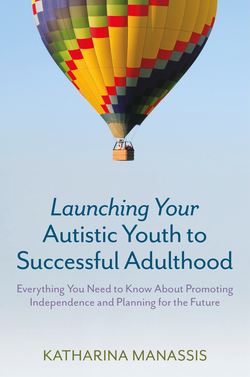Читать книгу Launching Your Autistic Youth to Successful Adulthood - Katharina Manassis - Страница 8
На сайте Литреса книга снята с продажи.
What is lost when high school ends?
ОглавлениеIf your autistic youth is already beyond the high school years, you may have a good idea of what changed when school ended. If not, you may wonder what to expect. Let’s examine what happens to many autistic youth at this time of transition, and how your experiences so far compare with this summary.
When comparing youth on the autism spectrum before and after the end of high school, researchers discovered that developmental progress did not necessarily continue. Rather, they found high rates of problem behaviors and mental health concerns, strained parent–child relationships, low rates of employment and independent living, and frequent social isolation (Jackson et al. 2018; Orsmond et al. 2013; Poon and Sidhu 2017; Taylor and Seltzer 2011a). Not all youth experienced these problems and there were certainly success stories as well, but the road to thriving in adulthood was rarely a smooth one.
These facts may sound discouraging, but they need not be if we understand what causes some youth on the autism spectrum to stop progressing or even deteriorate when high school ends while others thrive. Structure and support are two key factors which make a difference (Coury et al. 2014). Having the structure of predictable daily routines reduces anxiety and enhances emotional stability in autistic youth. When high school ends, losing school routines is disconcerting and, in some cases, overwhelming. High school structure also includes consistent expectations for academic performance and social conduct, with regular feedback on how students are doing in these areas. Many youth strive to live up to these expectations until high school ends. Then, with nothing to strive for, many become apathetic and eventually depressed. Losing high school friends and mentors can further contribute to low mood and social isolation. As shown in Robert’s example, when autistic youth deteriorate and spend excessive time at home, this lifestyle can also lead to conflict with parents and other family problems.
In many locations, support services for autistic adults are underdeveloped. For example, most post-secondary students on the autism spectrum report feeling educationally but not socially supported at college (Cai and Richdale 2016), which may contribute to their high rate of mental health problems in this setting. As Robert experienced, employment supports are also not consistently available or may not be specialized for autistic individuals. Medical and psychiatric services are accessed less often by autistic adults after they leave high school than before (Shattuck et al. 2011), often due to difficulty transitioning from child to adult services (see Chapter 6). Based on this information, there are at least two things you can do to help: think about how to structure your youth’s day after high school ends, and look into potential support services early.
